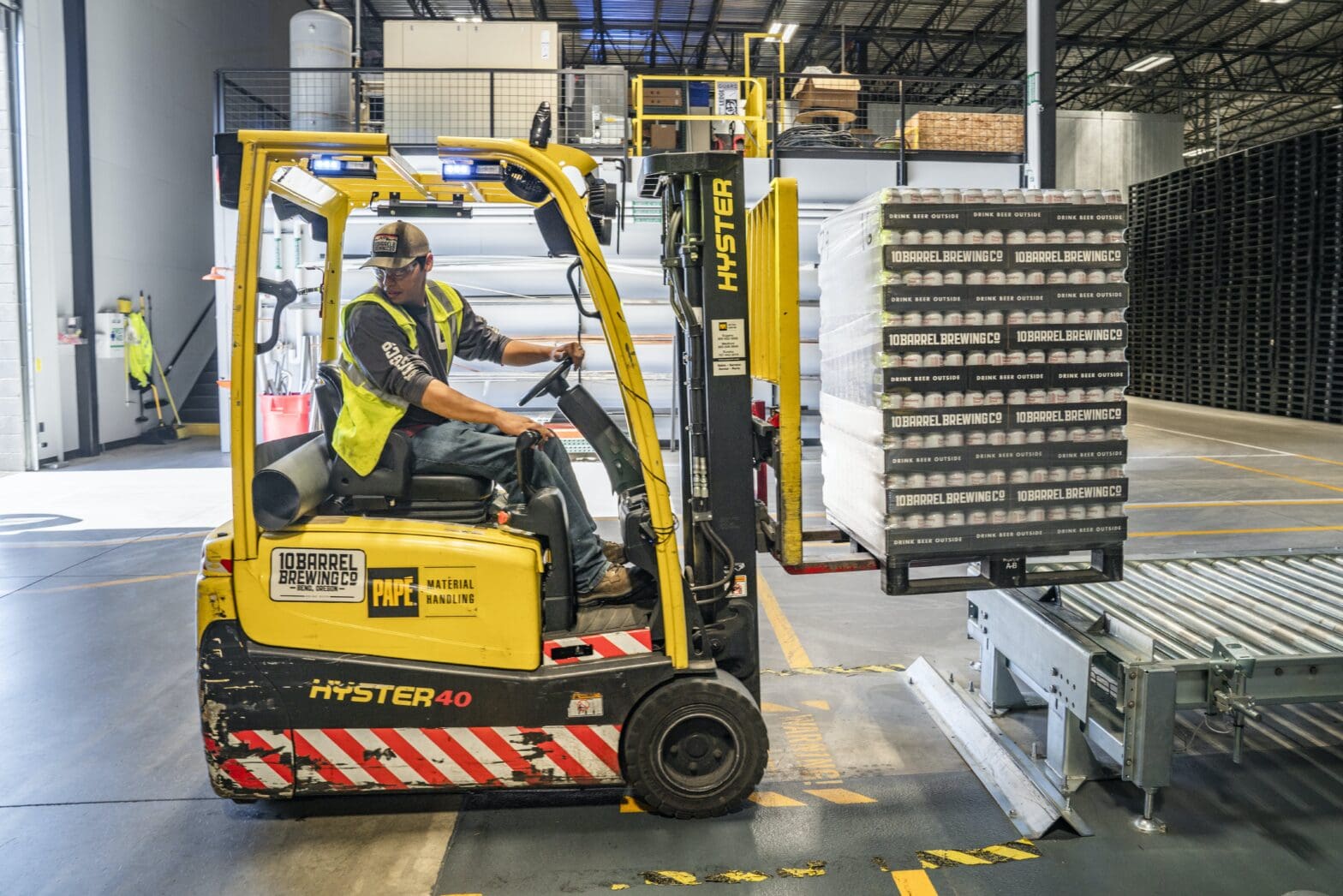Introduction
In the high-stakes world of industrial business-to-business (B2B) marketing, a well-crafted, data-driven strategy is crucial to outpace the competition and achieve your growth goals. If you’re a business owner struggling to generate organic traffic, reach your target audience, or effectively utilize digital marketing strategies, then this guide is for you. ‘The Ultimate Guide to Industrial B2B Marketing Strategies’ will provide you with a comprehensive overview of the key tactics and strategies used in industrial marketing, and how they can be tailored to meet the unique needs and challenges of your business. From understanding the dual aspects of industrial marketing to leveraging the power of digital marketing tools like SEO and Pay-Per-Click advertising, this guide has got you covered. Let’s dive into the world of industrial B2B marketing and explore how these strategies can help catapult your business to new heights of success.
Understanding Industrial Marketing
Industrial marketing, also referred to as business-to-business (B2B) marketing, is a specialized branch of marketing that targets other businesses, rather than individual consumers. This unique approach to marketing presents its own set of challenges and opportunities that distinguish it from traditional consumer-focused marketing.
Definition and Importance of Industrial Marketing
Industrial marketing is the promotion of goods and services to other businesses, with a key focus on selling raw materials and components for production needs. It’s a vital aspect of the business landscape, especially in industries such as agriculture, forestry, fisheries, mining, manufacturing, construction, transportation, communication and public utilities, banking, finance, insurance, and other services.
The main distinctive feature of industrial marketing is that the customers are not individuals but businesses. This changes the usual way of promoting goods and developing a marketing strategy. In fact, the success of many businesses depends on their ability to effectively market their products and services to other companies.
The Role of Industrial Marketing in B2B
Industrial marketing plays a crucial role in the B2B market, focusing on increasing sales of wholesale products and goods for industrial purposes. It helps companies that produce raw materials expand their businesses, and it often involves large orders and long-term relationships between the companies. Data shows that industrial buyers are typically 70% of the way through their purchase decision process before reaching out to a supplier, highlighting the importance of effective industrial marketing strategies.
Major Industries Benefiting from Industrial Marketing
Industrial marketing has a broad reach, influencing a variety of industries. Major sectors that benefit from industrial marketing include manufacturing, construction, transportation, communication, public utilities, banking, finance, and insurance services, among others. These industries rely on robust industrial marketing strategies to promote their products and services to other businesses, create strong relationships with their customers, and ultimately drive their business growth.
It’s important to note that industrial marketing isn’t just about promoting a product or service—it’s also about creating and maintaining strong relationships with other businesses, understanding their needs, and finding ways to meet those needs effectively. This requires a deep understanding of your target audience, precise market analysis, and the development of individual marketing strategies, all of which we’ll delve into in the following sections.
By understanding the ins and outs of industrial marketing, businesses can better position themselves in their respective markets, build stronger relationships with their customers, and ultimately achieve their business goals. Let’s now turn our attention to the key elements that make up an effective industrial marketing strategy.

Key Elements of an Effective Industrial Marketing Strategy
Creating an effective industrial marketing strategy can feel like piecing together a complex jigsaw puzzle. But by focusing on the key elements, you can form a clear picture of success. These central components include understanding the dual aspects of industrial marketing, harnessing the power of online marketing tactics, acknowledging the crucial role of research, and recognizing the importance of long-term relationships and large orders.
The Dual Aspects of Industrial Marketing
Industrial marketing is a two-sided coin. On one side, you are dealing with other businesses that are likely to be highly informed about the products and services they are seeking. On the flip side, you are also catering to individual decision-makers within these businesses, who have their own preferences and biases.
This means that your industrial marketing strategy must be twofold. You need to provide detailed, technical information about your products or services, while also building personal relationships with the decision-makers. This dual approach can give you a competitive edge in the challenging B2B marketplace.
The Power of Online Tactics in Industrial Marketing
In the digital age, online tactics form the backbone of any successful industrial marketing strategy. From search engine optimization (SEO) to pay-per-click advertising, digital tactics can significantly boost your visibility and reach within your target market.
As highlighted in the Ultimate Guide to Keyword Research by Cleartail Marketing, keyword research is a critical aspect of SEO. By understanding the search terms your potential customers use, you can create content that ranks highly in search engine results, driving more traffic to your website.
Email marketing, social media promotion, and reputation management are additional online tactics that can help you connect with your audience, build brand recognition, and manage your online reputation effectively.
The Crucial Role of Research in Industrial Marketing
Research is the compass that guides your industrial marketing strategy. It helps you understand your potential industrial buyers, their specific needs, and how their companies may develop.
Conducting market analysis, studying your competitors, determining your competitive advantages, and highlighting them in your content marketing are all essential aspects of this research. This information forms the foundation of your marketing strategy, helping you to position your product effectively and build trusting relationships with your clients.
The Importance of Long-Term Relationships and Large Orders
Finally, an effective industrial marketing strategy focuses on building long-term relationships and securing large orders. Unlike consumer marketing, where purchases are often impulsive and based on individual needs, industrial marketing revolves around long-term contracts, bulk orders, and ongoing service requirements.
Building trust is paramount. By caring about customer satisfaction, focusing on the changing needs of your clients, and continually developing your product to be the best in the market, you can foster long-term cooperation that benefits both parties. After all, in the world of industrial marketing, success isn’t just about making a sale – it’s about forging partnerships that stand the test of time.

Industrial B2B Marketing and Brand Promotion
As you chart your course in the world of industrial B2B marketing, several key elements come into play. From navigating niche and broader markets, building curated relations, understanding the complex vendor qualification process, managing derivative and dynamic demand cycles, to engaging qualified buyers, every aspect is crucial. Let’s delve into these factors in more detail.
Navigating Niche yet Broader Markets
In the industrial B2B space, your buyers can be extremely niche. However, these niche buyers can potentially make large scale, long term purchases. Cleartail Marketing can help you refine your SEO strategy to reach these specific target audiences. Not only will this result in higher quality leads, but it can also facilitate larger, more lucrative contracts.
Building Curated and Defined Relations
The relationship between B2B sellers and buyers is closer than in the B2C arena. Changing vendors can be costly in both time and money, making the formation of long-lasting, trustworthy relationships crucial. By using email marketing techniques such as lead nurturing emails, you can build and maintain these vital relationships, ensuring customer satisfaction and loyalty.
Understanding the Complex Vendor Qualification Process
The buying process in the industrial sector is often complex and involves various departments and individuals. Your challenge as a marketer is to ensure your company is discovered by the right people and to qualify your business in front of them. You need to win their trust before they recommend you to their C-level decision-maker. Cleartail Marketing can help you navigate this complex process with effective email marketing campaigns.
Managing Derivative Demand and Dynamic Demand Cycles
The demand for industrial goods and services is often a derivative of the final product sold to consumers. If the demand from the Original Equipment Manufacturer (OEM) increases, so does the demand for the industrial good. However, this demand is volatile and can’t be predicted with a linear pricing model. By understanding these dynamics, you can anticipate market changes and adjust your marketing strategy accordingly.
Targeting and Engaging Qualified Buyers
Industrial goods are often purchased by qualified professionals or third-party agents who have a thorough knowledge of the products they are buying. This makes the negotiation curve critical in the selling chain. Cleartail Marketing can help you reach these qualified buyers with strategic SEO optimization, helping to place your business in front of the right eyes at the right time.
In conclusion, mastering these aspects of industrial B2B marketing can help promote your brand more effectively, resulting in increased visibility, stronger relationships, and ultimately, improved sales.

Reflecting on Your Industrial Marketing Strategy
Your industrial marketing strategy should be a dynamic, evolving entity that adapts to industry changes, customer behaviors, and market trends. It’s not a set-and-forget mechanism but requires constant reflection and tweaking. This section delves into the vital elements of this reflective process: conducting a thorough market analysis, effective product positioning, developing individualized marketing strategies, and building trust in industrial B2B relationships.
Conducting Thorough Market Analysis
In the realm of industrial marketing, a comprehensive market analysis is a non-negotiable first step. You must evaluate potential industrial buyers, understand their needs, and anticipate their company’s development. This exercise helps you identify what product or service will most effectively meet their requirements.
Moreover, thorough market analysis includes a deep dive into your competitors’ strengths and weaknesses. This understanding helps you develop competitive advantages and devise strategies to underline them in your future content marketing efforts.
Effective Product Positioning in Industrial Marketing
Product positioning is a crucial puzzle piece in the industrial marketing strategy. Remember, your clients are highly qualified in their sphere, making accurate positioning pivotal to success in the competitive B2B market.
It’s critical to highlight all the advantages and provide detailed information about your product in an easily accessible manner. The goal is to make the customer feel cared for and build trust, which can significantly influence their decision-making process.
Developing Individualized Marketing Strategies
Industrial marketing isn’t a one-size-fits-all. It requires developing individualized marketing strategies for each client. This process involves determining the key elements of marketing policy, including product, service, and pricing policies. Additionally, you’ll need to establish a communication strategy and outline the peculiarities of your future work with each client. This personalized approach is what differentiates industrial marketing from consumer marketing.
Building Trust in Industrial B2B Relationships
Trust is the foundation of successful and long-lasting industrial B2B relationships. Therefore, your marketing strategy should focus on building this trust. This involves prioritizing customer satisfaction and adapting to the evolving needs of your clients. By focusing on long-term cooperation, you’re not only working to meet your business goals but also fostering a relationship that encourages repeat business and referrals.
In conclusion, reflecting on your industrial marketing strategy is an ongoing process that requires a deep understanding of your market, strategic product positioning, personalized marketing strategies, and trust-building. By mastering these elements, you’re well on your way to fostering successful industrial B2B relationships and driving your business growth.

Leveraging Digital Marketing for Industrial B2B Marketing
In today’s digital age, traditional marketing strategies are no longer enough to drive business growth. Industrial B2B marketing has shifted towards digital platforms, introducing a plethora of new strategies to reach, engage, and convert potential customers. From SEO optimization and pay-per-click advertising to social media and reputation management, digital marketing is a game-changer for industrial B2B brands.
SEO Optimization for Industrial Marketing
Search Engine Optimization (SEO) is the practice of increasing the quantity and quality of traffic to your website through organic search engine results. For industrial B2B brands, a successful SEO strategy can significantly improve your visibility to potential clients.
Regularly updating your website with relevant content, targeting strategic keywords, and ensuring your website is user-friendly are key SEO tactics. According to Cleartail Marketing, businesses that implement a successful SEO strategy can expect to see a return on their investment within 3 to 6 months, though this can vary depending on industry competition.
Pay-Per-Click Advertising for B2B Brands
Pay-per-click (PPC) advertising is another powerful digital marketing tool. This form of advertising allows businesses to bid for ad placement in a search engine’s sponsored links. Every time a user clicks on one of these ads, the company pays a small fee. This investment can deliver substantial results, driving significant traffic to your website and increasing your chances of converting leads into customers.
The Role of Social Media in Industrial Marketing
Social media platforms are not just for B2C marketing, they also play a crucial role in B2B marketing. LinkedIn, for instance, is a powerful tool for building business relationships and promoting industrial products or services. Sharing industry-focused content, engaging in conversations, and showcasing your brand’s expertise on social media can help you connect with potential clients, build brand awareness, and solidify your reputation in your industry.
Reputation Management for Industrial Brands
In a digital world where information is easily accessible, maintaining a positive online reputation is vital for any business, especially for industrial B2B brands. Negative reviews or comments can significantly impact your brand image and potentially deter prospective clients.
Reputation management involves monitoring what’s being said about your brand online, addressing any negative feedback promptly and professionally, and promoting positive testimonials. This not only helps to maintain a positive brand image but also demonstrates your commitment to customer satisfaction.
In closing, leveraging digital marketing in your industrial B2B marketing strategy can significantly enhance your brand’s visibility, increase web traffic, and drive business growth. As with any marketing strategy, it’s crucial to keep abreast of the latest trends and adapt your strategy as needed to stay ahead of the competition.
Conclusion
In the ever-evolving landscape of industrial B2B marketing, staying ahead of the curve requires a dynamic and innovative approach. As we’ve discussed, successful industrial marketing strategies encompass a blend of traditional tactics and contemporary digital marketing methods. From understanding your niche market to building tailored relationships, from managing dynamic demand cycles to engaging qualified buyers, every facet of your strategy should be meticulously crafted and constantly refined.
Digital marketing plays an increasingly pivotal role in this sphere, offering a wealth of opportunities to boost your brand’s online presence and drive growth. Whether it’s through SEO optimization, pay-per-click advertising, social media engagement, or reputation management, the digital realm opens up new avenues to reach and engage your target audience more effectively.
Remember, the key to successful industrial marketing lies not just in adopting these strategies but in integrating them into a comprehensive, cohesive strategy. It’s about understanding your audience, meeting them where they are, and providing value that aligns with their needs and expectations.
By partnering with a seasoned digital marketing agency like Cleartail Marketing, you can leverage expert insights and innovative solutions to supercharge your industrial B2B marketing strategy. With a focus on delivering measurable results, Cleartail Marketing can help you navigate the intricate landscape of industrial marketing, ensuring your brand stands out in the crowded B2B marketplace.
In the end, industrial marketing is a journey, not a destination. It’s a constant process of learning, adapting, and growing. As you continue to refine your strategies, keep your focus on building lasting relationships with your customers, providing exceptional value, and maintaining a strong, consistent brand image.
Remember, in the world of industrial B2B marketing, success is not just about closing a sale—it’s about creating a lasting impression that turns customers into advocates for your brand. So, keep experimenting, keep learning, and keep pushing the boundaries of what’s possible with your industrial B2B marketing strategies. The potential for growth is limitless.



